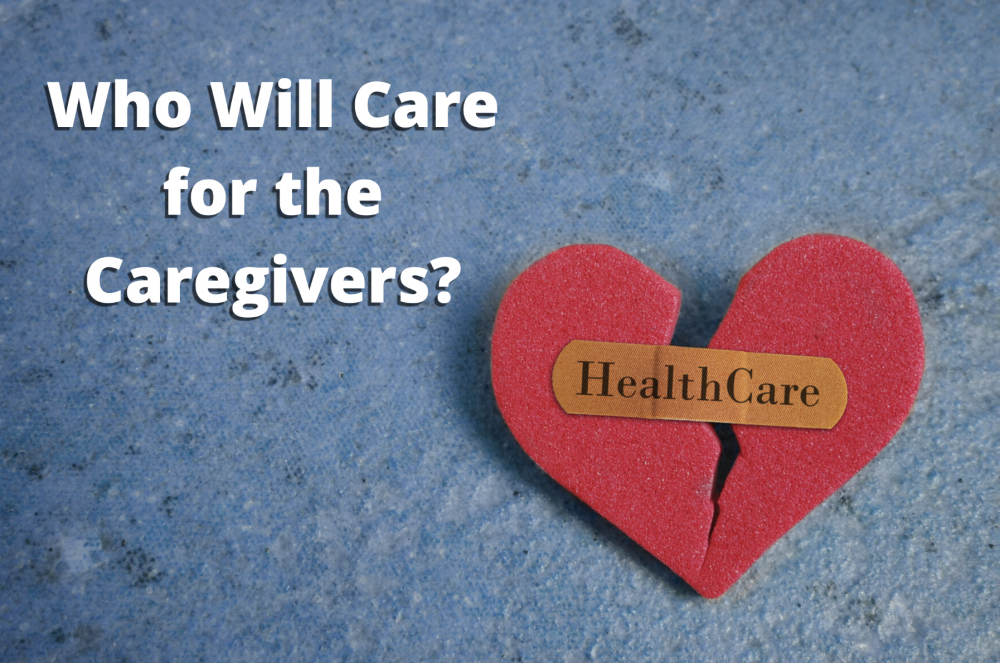You may drive by a hospital or see a sign on someone’s lawn that proudly exclaims, “Heroes work here!” or “Thank you to our healthcare workers!” These are wonderful sentiments and ones we certainly echo and appreciate. This is why we need to ask ourselves, “Who will care for the caregivers?”
Being the person who cares for others, who explains and mitigate risks, manages supply needs, and provides the emotional support during this pandemic for others, all while managing our pre-pandemic tasks can sure take a toll. As a result, caregivers, by choice or profession, are facing a higher likelihood of experiencing symptoms of trauma and burnout during the global pandemic.
Experiencing such increased stress over an extended period of time will have a remarkable short-term and long-term impact on the caregiver community. It can affect us both professionally and personally at a time when we need to be on the top of our game as we attempt to keep the pandemic at bay.
“Burnout” is defined by World Health Organization as:
- Feelings of energy depletion or exhaustion
- Increased mental distance from one’s job, or feelings of negativism or cynicism related to one’s job
- Reduced professional efficacy
Honestly, it is fair to guess you or frontline staff you know are experiencing some of the above. The question is, are these feelings impacting our daily lives and is burnout morphing into something more like trauma?
Which May Look More Like:
- Difficulty sleeping
- Increase anxiety
- Hypervigilance
- Psychical symptoms
Being able to take preventative measures as well as recognize the symptoms and respond can help us all feel our best.
Many of us have built a little COVID-19 toolkit we tote around to help keep us safe, a mask and some hand sanitizer perhaps. Maybe it is swimming around the bottom of your purse or neatly tucked away in your glove box – but have you prepared a toolkit for your emotional health during the pandemic?
Here are some quick ideas to help you fill up that toolbox and prepare for the tough times to come:
- Take care of your basic needs – eat well, hydrate, and sleep – we all know how a healthy body facilitates a healthy mind. You may be busy, but you can’t do your job unless you take time to fuel up for the task ahead.
- Laugh – share some memes with your friends, read a good “dad joke,” or just laugh at nothing at all if you’ve got the time.
- Safely stay engaged with friends – we know we’re socially distant, but don’t be socially negligent – reach out, call someone on facetime, play an online game together
- Seek support from supervisors and peers alike – sometimes all we need is to speak candidly with someone who knows what we’re going through. Shared empathy is a wonderful virtue that helps ease stress.
- Use time off wisely, really unwind and disconnect – Turn off notifications, shut down your computer, drive to your local park and leave your phone at home – anything to take some time for yourself.
- Find a few moments each day to de-stress – This one might seem the most impossible, but you need to find a way. Take out some headphones and listen to your favorite song, download an app for five-minute meditation, or just go for a walk around the neighborhood. These small breaks add up to a lot of positive vibes.
- Get professional help – if you are overwhelmed reach out to a professional – there is no shame in this. You may be a hero, but you are not a SUPER hero. We’re all still vulnerable to the effects of stress.
And don’t forget to take care of your colleagues. Keep an eye out for the signs of burnout or trauma as listed above in this article. If you see someone you are close to experiencing these symptoms, don’t be afraid to reach out.
Resources:
(Facing Burnout As A Healthcare Worker, 2020)
(How To Build Your Emotional Personal Protective Equipment, 2020)
(Burn-out an “occupational phenomenon”, 2019)

